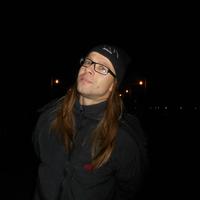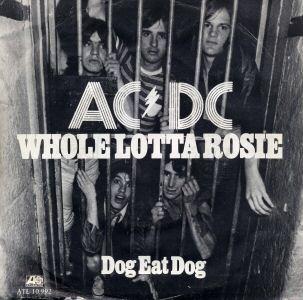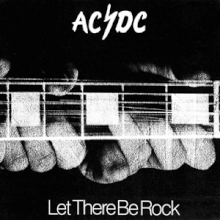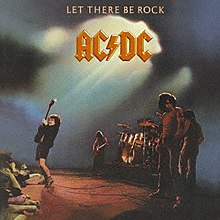Recorded: January–March 1978 at Albert Studios in Sydney, Australia
Label: Atlantic
It was the band's fourth internationally released studio album and the fifth to be released in Australia. It was also the first AC/DC album to feature Cliff Williams on bass. All songs were written by Angus Young, Malcolm Young and Bon Scott. After a 12-date European tour opening for Black Sabbath in April, bassist Mark Evans was fired from AC/DC on May 3, 1977. Young brothers were seriously considering Colin Pattenden of Manfred Mann fame until Browning, who feared Pattenden was too old and did not fit their image, pushed Englishman Cliff Williams, who had played with Home and Bandit. Williams, who could also sing background vocals, passed the audition and would go on to record on Powerage, although Evans insists that the album also has bass by him, as the Powerage songs started being done during the recording of his last album Let There Be Rock, and producer George Young while Williams was having trouble getting his work visa. The band finally toured America for the first time in the summer of 1977, focusing on smaller markets at first but eventually playing CBGB's in New York and the Whiskey A Go Go in Los Angeles. In December they played a set in front of a small audience at Atlantic Recording Studios in New York City which was broadcast live over Radio WIOQ in Philadelphia and hosted by Ed Sciaky. owerage were started in July 1977 during the band's first rehearsals with Williams at Albert Studios, including "Kicked in the Teeth," "Up To My Neck In You," an early version of "Touch Too Much," and possibly "Riff Raff." The Powerage sessions officially got going in January 1978 and stretched over a period of about eight weeks. With the first pressings of Powerage ready to go in the UK, the band complied and recorded "Rock 'n' Roll Damnation"; the song, which features handclaps and maracas and does not have a traditional guitar solo, was released in Britain at the end of May and went to #24, the best performance yet by an AC/DC single. However, Powerage would be the final Bon Scott-era studio album the band would record with the team of Harry Vanda and George Young, who had produced all of the bands albums up to that point , the feeling from Atlantic being that a more commercial producer might do wonders for the band's profile in the lucrative American market.
Band members:
Phil Rudd – drums
Bon Scott – lead vocals

Cliff Williams – bass guitar, backing vocals. Clifford Williams was born on 14 December 1949 in Romford, Essex, on the outskirts of London. The Williams family moved to Hoylake, near Liverpool, in 1961, where he was influenced by the local Merseybeat movement and decided to become a rock musician. At the age of 13, he and some friends formed a band. Williams has listed The Rolling Stones, The Kinks and blues musicians such as Bo Diddley as influences for his style. He mostly learned to play bass guitar by "listening to records and picking out notes", with formal training limited to some lessons from a professional Liverpool bassist. Williams left school when he was 16 years old, becoming an engineer by day and musician by night. In 1966, Williams became a professional musician and moved back to London, where he worked at a demolition site and in supermarkets, and played in short-lived bands. Williams met guitarist Laurie Wisefield (later a member of Wishbone Ash), and the two became members of a band, Sugar, which soon broke up. In 1970, Williams and Wisefield joined with singer Mick Stubbs, keyboardist Clive John and drummer Mick Cook to form the progressive rock group Home. The band signed a recording deal with Epic Records and issued their debut LP, Pause for a Hoarse Horse, in 1971. Home was a supporting act for Jeff Beck, Mott the Hoople, The Faces and Led Zeppelin. In 1972, Jim Anderson replaced John on keyboards and Home released a self-titled album, featuring their only hit single, "Dreamer". Their next album, The Alchemist, followed in 1973, but did not gain chart success. When British folk singer-songwriter Al Stewart suggested that Home back him on his first American tour in March 1974, Mick Stubbs left the group. The rest of the members became the Al Stewart Band, but split up after the tour. Williams briefly played with the American band Stars before forming Bandit in 1974. Bandit's line-up included vocalist Jim Diamond and drummer Graham Broad (later in Bucks Fizz and Roger Waters's band). The group signed with Arista Records and released a self-titled album in 1977. Bandit also performed as Alexis Korner's backing band on 1977's The Lost Album before disbanding later that year. In 1977, Williams considered retiring from music when Bandit disbanded, but one of the group's guitarists, Jimmy Litherland, convinced him to audition for Australian heavy rockers AC/DC. They were looking for a bassist as Mark Evans had been fired shortly after recording the 1977 studio album Let There Be Rock. Williams said shortly after being told about AC/DC's auditions, he saw the band on Top of the Pops and reacted positively, describing them as "outrageous". For his audition, Williams played four jam sessions with the band, and on 27 May 1977, he was asked to join AC/DC. Angus declared it was partly motivated because he thought the bassist's good looks would attract more women to their concerts. Given Williams was replacing an Australian musician, he initially had difficulties obtaining a work permit to enter the country. His first performances with AC/DC were on the tour there supporting Let There Be Rock, with two secret gigs at Sydney's Lifesaver. The album Powerage (1978), produced by Vanda & Young, marked Williams's studio debut.
Angus Young – lead guitar
Malcolm Young – rhythm guitar, backing vocals
Michael A. Browning - Management
Mark Opitz - Engineer
Harry Vanda - Producer
George Young - Producer
https://www.youtube.com/watch?v=zYWYDx16JFg
https://www.youtube.com/watch?v=ErXbMB9R5-0
https://www.youtube.com/watch?v=ASJy3c4ACiU








